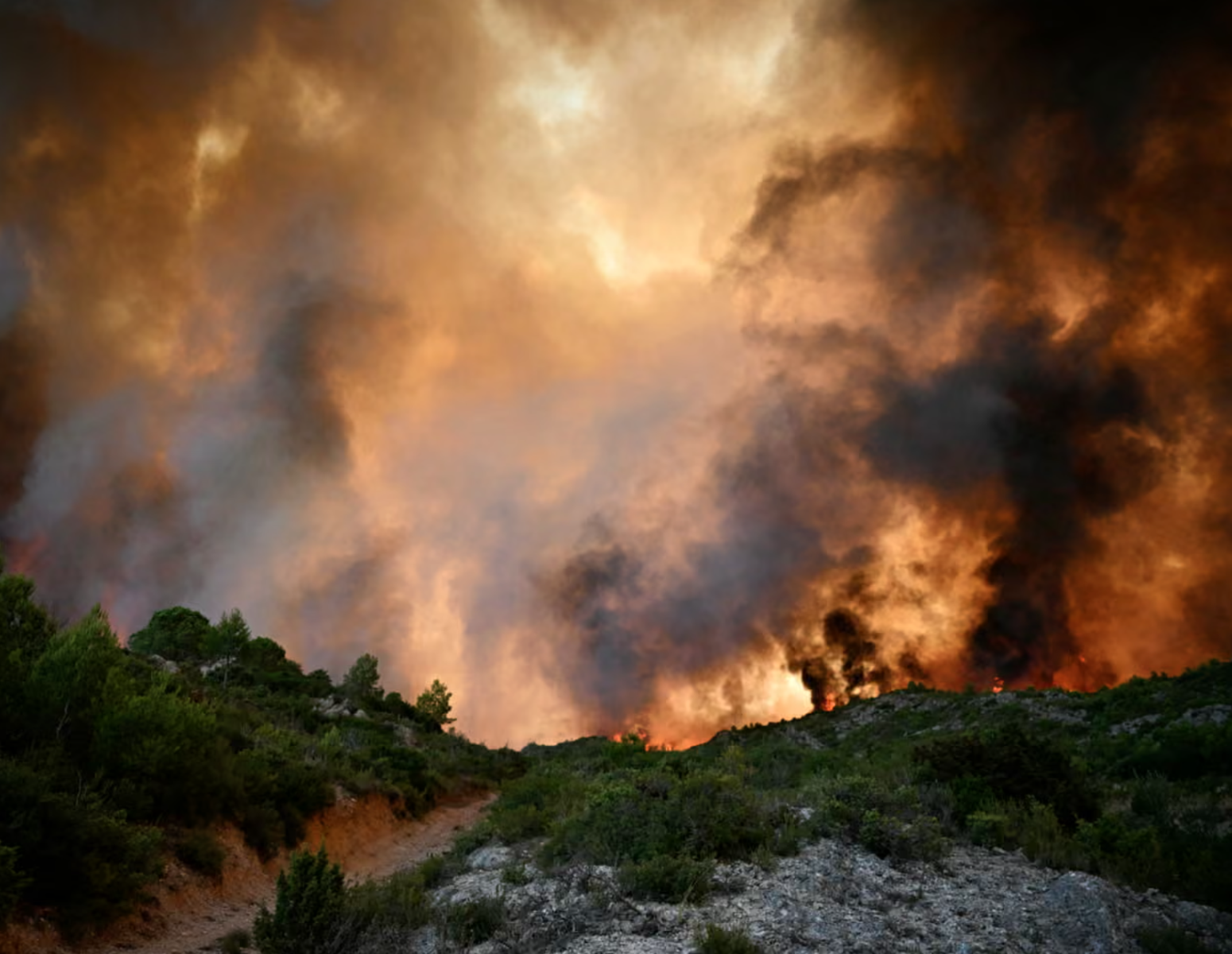
The fire, which erupted on Tuesday near the village of Ribaute in the Aude department, rapidly spread inland from the Mediterranean coast towards the Spanish border. Fanned by strong winds and parched conditions, it has become France's second-largest wildfire in five decades.
Authorities confirmed one woman has died in her home, while nine others were injured, including a person in critical condition with severe burns. Several firefighters were among the injured. The blaze has destroyed or severely damaged at least 25 homes, with police currently investigating its cause.
French Prime Minister François Bayrou, who visited the scene, called the event "a catastrophe of unprecedented scale," pointing directly to the role of climate change and prolonged drought in fuelling the crisis.
"What we are witnessing today is the direct consequence of climate change," Bayrou said.
According to the Ministry for Ecological Transition, the fire destroyed in a single day an area of land equivalent to the annual wildfire damage seen across the entire country in previous years. "It is an extraordinary and deeply alarming event," the ministry said, underscoring the intensifying impacts of the climate crisis.
Villages Evacuated as Fire Rages Unchecked
By Wednesday evening, the blaze remained highly active. Entire communities have been evacuated, including the village of Jonquières, where Mayor Jacques Piraux described the aftermath as apocalyptic.
"It's like a lunar landscape," he told BFM TV. "More than half the village has burned down. It's hellish."
In addition to Jonquières, nearby camping sites and roads have been closed as a precaution. Tourists and residents have been advised to stay indoors unless instructed to evacuate by emergency services. Some evacuees spent the night in temporary shelters, including municipal buildings.
Lucie Roesch, secretary general of the Aude prefecture, warned that conditions remain extremely dangerous.
"The fire is progressing through terrain that is highly vulnerable—dry, hot, and windy," she said. "We're monitoring the edges to prevent flare-ups, but this will remain an active emergency for several days."
Aircraft have been deployed to drop water on the flames, but firefighting teams say it's a race against time. Weather forecasts indicate worsening conditions, with strong winds, soaring temperatures, and extremely dry vegetation expected to continue.
A Region on the Frontlines of Climate Crisis
President Emmanuel Macron expressed his support on social media, noting that "all of the nation's resources are mobilised" in the firefighting efforts. He urged the public to remain vigilant and follow safety instructions.
The Aude region, once buffered from fire by vineyards that acted as natural firebreaks, has become increasingly vulnerable due to land-use changes and persistent drought. Locals are growing increasingly anxious.
Aude Damesin, a resident of Fabrezan, described the emotional toll:
"It's heartbreaking to see fires like this becoming so common. We're losing our land, our wildlife, our homes."
This latest disaster comes amid a summer of relentless wildfires across southern Europe. In Portugal alone, more than 25,700 hectares have burned since the start of 2025. Central Spain, Turkey, Greece, and parts of the Balkans are also grappling with devastating fires.
Scientists have long warned that Europe is warming faster than any other continent. According to the EU's Copernicus Climate Change Service, the continent has seen temperatures rise at twice the global average since the 1980s—intensifying the frequency and severity of wildfires.
As emergency services continue their battle on the ground, France and its neighbours face the stark reality of a changing climate—one where such fires may become not the exception, but the norm.